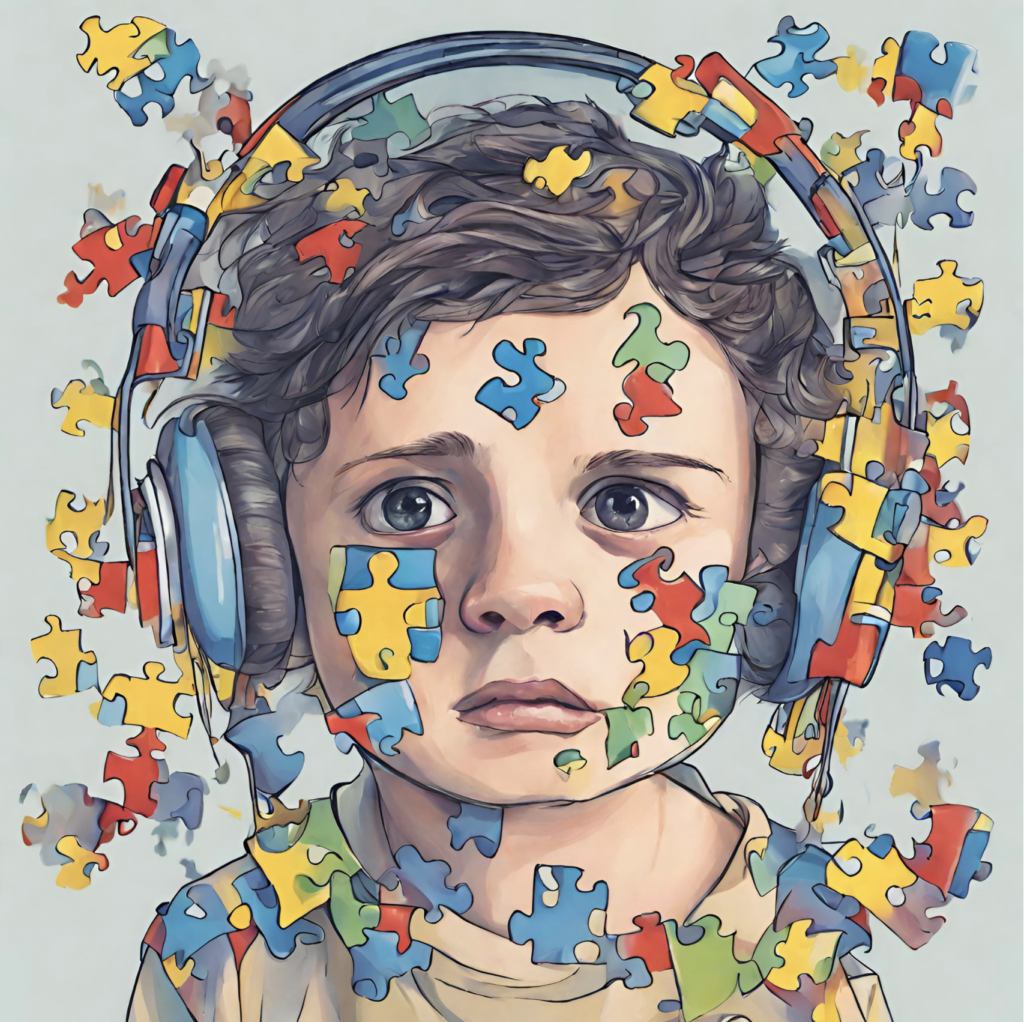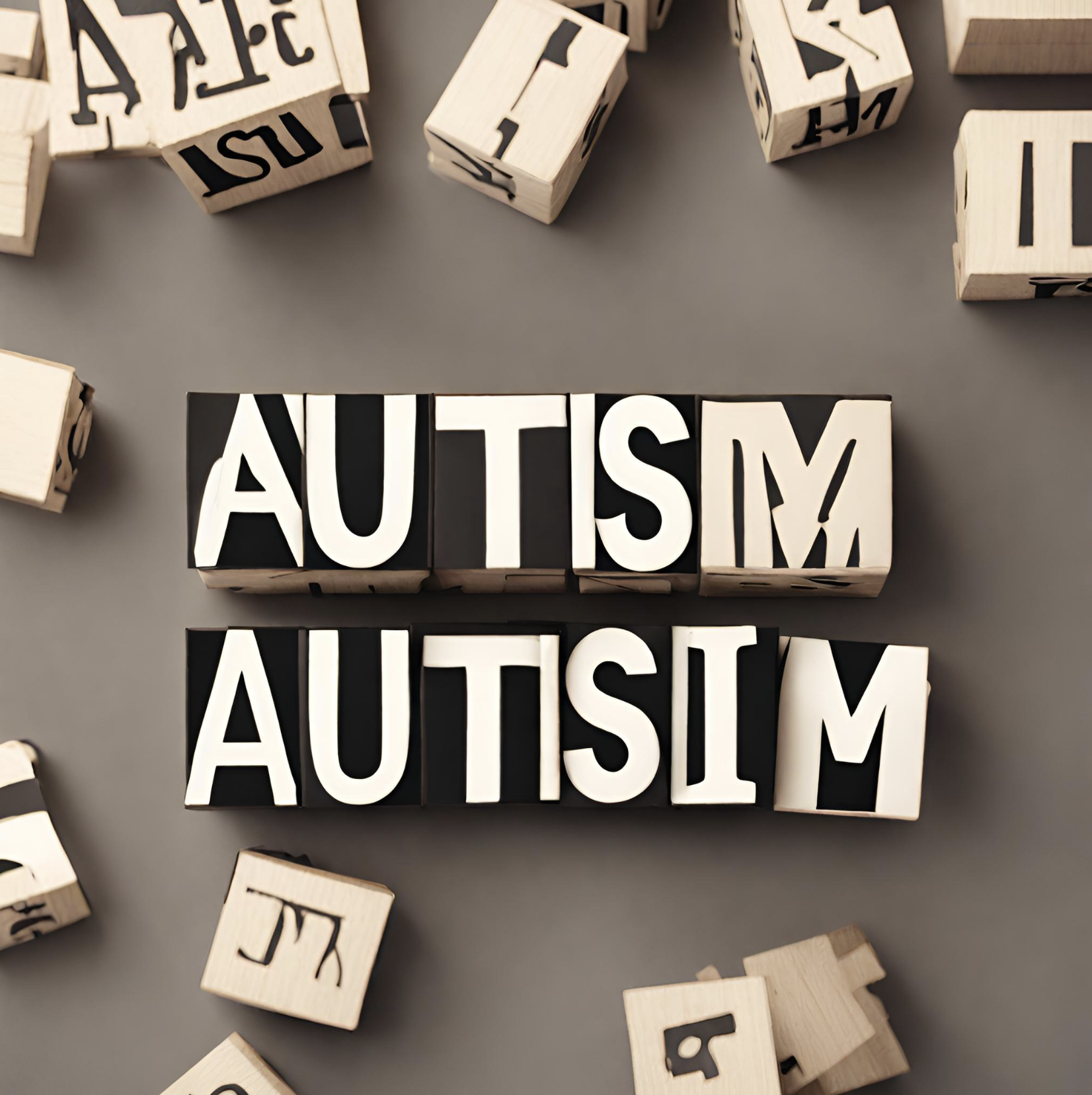Anxiety. It’s a feeling most of us know all too well – that knot in your stomach, the racing thoughts, the constant hum of worry. But for autistic individuals, anxiety can be a particularly pervasive and complex challenge. Understanding how anxiety manifests in autism, and exploring strategies like coaching, can be a crucial step towards a calmer, more fulfilling life.
The Intersection of Autism and Anxiety
Statistics paint a clear picture: research suggests that anxiety disorders affect roughly 40% of autistic individuals. This significantly higher rate compared to the general population highlights a unique intersection between the two conditions. Here’s why anxiety might be more prevalent in autism:
- Sensory Overload: The world can be a barrage of overwhelming sights, sounds, smells, and textures for autistic individuals. This sensory overload can trigger fight-or-flight responses, leading to anxiety and stress.
- Social Challenges: Social interaction can be a minefield for autistic individuals. Difficulty interpreting social cues, navigating unspoken rules, and experiencing social rejection can fuel anxiety in social situations.
- Change and Routine: Autistic individuals often thrive on routine and predictability. Disruptions to routine or unexpected changes can cause anxiety and a sense of loss of control.
- Perfectionism and Black-and-White Thinking: Some autistic individuals have strong desires for order and perfection. When things don’t go according to plan or mistakes are made, it can trigger anxiety and self-criticism.
The Many Faces of Anxiety in Autism
Anxiety in autism can manifest in diverse ways – not always fitting the stereotypical image of panic attacks. Here are some common signs to watch for:
- Physical Symptoms: Headaches, stomachaches, fatigue, difficulty sleeping, and changes in appetite can all be signs of anxiety in autistic individuals.
- Repetitive Behaviours: Stimming behaviours, such as rocking or flapping hands, can increase in frequency or intensity when someone with autism feels anxious.
- Social Withdrawal: An autistic individual experiencing anxiety might withdraw from social interactions or activities they previously enjoyed.
- Meltdowns and Shutdowns: In extreme cases, anxiety can lead to meltdowns (overwhelming emotional outbursts) or shutdowns (withdrawal and disengagement from the environment).
The Impact of Anxiety in Autism
Unmanaged anxiety can have a significant impact on an autistic person’s life. It can:
- Impede Daily Functioning: Anxiety can make it difficult to complete daily tasks, attend school or work, and maintain relationships.
- Reduce Quality of Life: Constant anxiety can take a toll on mental and emotional well-being, leading to feelings of frustration, depression, and isolation.
- Hinder Self-Esteem: Fear of failure and social anxieties can negatively impact self-esteem and self-confidence.

Strategies for Managing Anxiety in Autism
Fortunately, there are strategies that can help autistic individuals manage their anxiety. These include:
- Mindfulness and Relaxation Techniques: Practicing mindfulness meditation, deep breathing exercises, and progressive muscle relaxation can help calm the nervous system and manage anxiety symptoms.
- Sensory Integration Therapy: This therapy can help individuals develop a better tolerance for sensory input, reducing sensory overload – a common trigger for anxiety.
- Social Skills Groups: Participating in social skills groups can provide a safe and supportive environment for autistic individuals to learn and practice social skills, boosting confidence and reducing social anxiety.
- Therapy: Cognitive behavioural therapy (CBT) can be beneficial in identifying and challenging negative thought patterns that contribute to anxiety.
- Creating a Support Network: Surrounding yourself with supportive friends, family, and professionals who understand autism can provide invaluable emotional support and a sense of belonging.
Coaching: A Path Towards Calmer Waters
While traditional therapies offer valuable tools, autism coaching can be a powerful complementary approach for autistic individuals struggling with anxiety. Coaching provides a safe and supportive space for individuals to explore their experiences, develop personalised coping mechanisms, and build resilience. Here’s how coaching can be beneficial:
- Self-Awareness: A coach can assist individuals in understanding how their specific traits interact with anxiety.
- Understanding Anxiety Triggers: A coach can help individuals identify their specific anxiety triggers, whether it’s sensory overload, social situations, or changes in routine.
- Developing Coping Mechanisms: Coaching can equip individuals with practical strategies to manage anxiety, such as deep breathing exercises, mindfulness techniques, and sensory calming activities.
- Building Social Skills: Many autistic individuals struggle with social anxiety. Coaching can help them develop communication skills, understand social cues, and navigate social situations with greater confidence.
- Building Resilience: Coaching can help individuals develop coping mechanisms for dealing with change and managing unexpected situations, reducing anxiety and promoting emotional resilience.
- Challenging Negative Thoughts: Through coaching, autistic individuals can learn to identify and challenge negative thought patterns that contribute to anxiety.
- Developing Self-Compassion: Autism comes with its own set of challenges. Coaching can foster self-acceptance, self-compassion, and a positive self-image, mitigating the impact of anxiety.
The Coaching Process for Autistic Individuals
Similar to ADHD coaching, coaching for anxiety in autism is a collaborative and individualised process. Here’s a typical breakdown:
- Initial Assessment: The coach and client discuss the individual’s challenges and goals.
- Developing a Coaching Plan: A plan is created outlining specific areas to focus on and strategies to implement.
- Coaching Sessions: Regular sessions provide guidance, support, and accountability.
- Practicing Skills: The client actively practices newly learned skills between sessions.
- Ongoing Evaluation and Adjustment: Progress is reviewed regularly, and the plan is adjusted as needed.

Finding the Right Coach
Finding a qualified coach who understands autism and anxiety is crucial. Look for an Australian coach with the following attributes:
- Qualifications: They should be certified by a reputable organisation like the Attention Deficit Disorder Coaching Academy (ADDCA) or the International Coach Federation (ICF).
- Experience: Seek a coach with experience working with autistic individuals, particularly those struggling with anxiety.
- Approach: Choose a coach whose approach aligns with your values and preferences. Some coaches offer a cognitive-behavioural therapy (CBT) approach, while others focus on mindfulness or acceptance and commitment therapy (ACT).
- Communication Style: Find a coach you feel comfortable talking openly and honestly with.
Conclusion: Building a Calmer Future
Anxiety might be a common theme in the lives of autistic individuals, but it doesn’t have to dictate your story. By understanding the unique connection between autism and anxiety, exploring strategies like coaching, and building a toolkit of coping mechanisms, you can navigate challenges and create a calmer, more fulfilling life. Remember, you’re not alone. There are resources available to support you on your journey towards greater well-being. Take the first step today and explore strategies that can help you unravel the knot of anxiety and embrace a brighter future.
Additional Resources
- Autism Asperger’s Advocacy & Support Australia (Triple A): https://a4.org.au/
- Australasian Society of Cognitive Behaviour Therapists: https://www.aacbt.org.au/
- Smiling Mind: https://www.smilingmind.com.au/
Remember: This blog post is for informational purposes only and doesn’t constitute medical advice. Always consult a qualified healthcare professional for personalised guidance in managing anxiety.

Be the first to comment